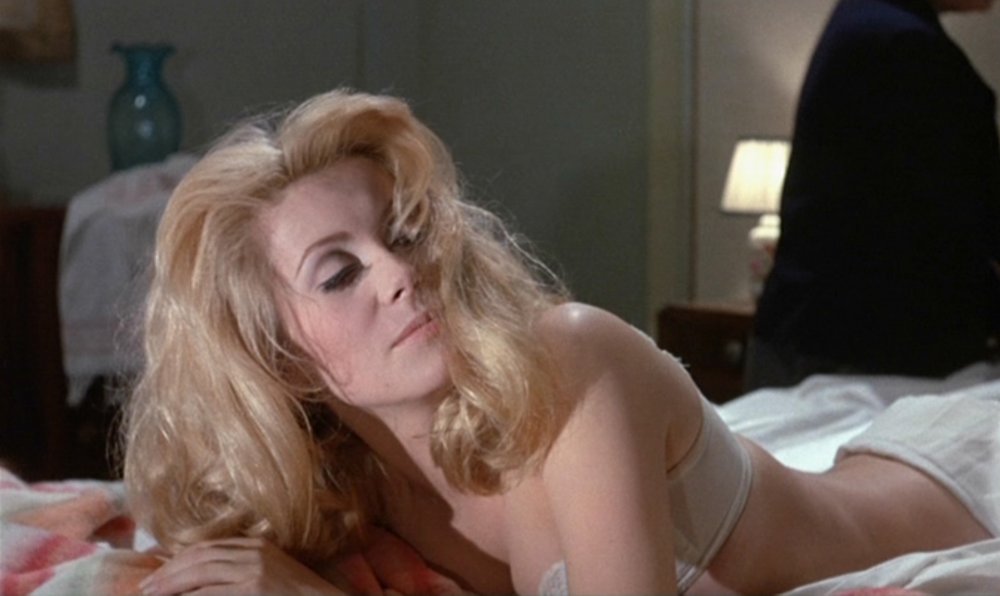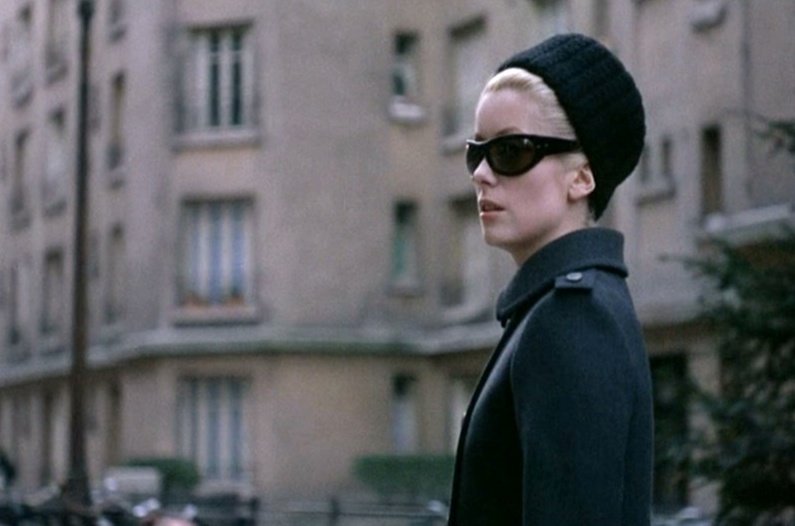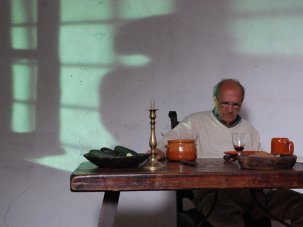Luis Buñuel’s exquisite and spell-binding film – allegedly his last – opens to the sound of coach bells as Severine (Catherine Deneuve) and her husband Pierre (Jean Sorel) are driven in an open landau through an autumnal landscape; Pierre abruptly stops the coach, and on his orders a liveried coachman and footman drag Severine from the coach, bind her, beat her and molest her. The next shot shows Severine and Pierre, serene and chaste, together in their Paris flat.
At the close of the film, as Pierre sits lifelessly in his wheelchair, Severine again hears the bells; she calls Pierre over to the window, and he walks towards her in perfect health; only this time the carriage we see driving down the same country road is empty. The suggestion here seems to be that an exorcism has taken place, and that Severine has transcended her masochistic needs. But we remain uncertain whether it is reality or fantasy that has dispelled her masochism, uncertain whether Pierre is really paralysed and his resurrection a fantasy; or whether he is really unharmed, with everything that has come before – including all that has taken place at Madame Anaïs’ ‘house’ – merely representing the progressive fantasies by which Severine is liberated.

The beauty of Belle de Jour, though, lies in the fact that Buñuel has made interpretation irrelevant, blending memory, fantasy and reality into an indissoluble whole. While Severine’s life and fantasies betray a total separation of flesh and spirit, love and eroticism, Sacha Vierny’s camerawork fuses the two realms into one by extracting (as Baudelaire chose to do) the quintessentially beautiful from good and evil alike. By showing us only the surface of his characters, by refusing to judge them, Buñuel goes beyond moral distinctions, moving rhythmically and inexorably – without the emotive help of music – to a final image diffused with a sense of liberation.
Catherine Deneuve, whose limpid beauty is capable of sustaining any interpretation, is a perfect Severine and demonstrates a remarkable control in progressing, with enormous economy of gesture and movement, from frigidity to physical warmth. And Geneviève Page gives an electrifying performance as Madame Anaïs, hinting at elements of cruelty and lesbianism in the character, while exuding a business-like warmth.
☞
-
The Digital Edition and Archive quick link
Log in here to your digital edition and archive subscription, take a look at the packages on offer and buy a subscription.






